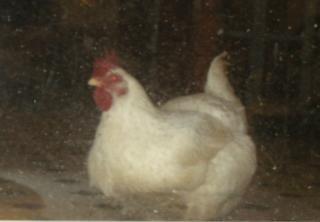- Apr 24, 2007
- 14
- 0
- 22
I just found a chicken running around Seattle. After a week of awkward living in a house and a rabbit coop, she finally has a nice coop and a large 'chicken yard' to run in with proper supplies and care. I thought she was a leghorn because she is white with a red gizzard and comb (i think thats what its called), like in the cartoons, but I just saw that White Rocks look the same. I was robbed of my digital camera so I can't show you pictures, so how can I tell the difference?
Last edited:




